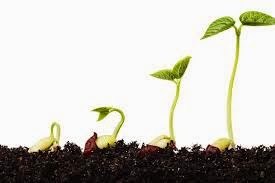Region needs sustainable land management
Lazarus Sauti
Sustainable land
management can be defined as “the adoption of land use systems that, through
appropriate management practices, enable land users to maximise the economic
and social benefits from the land while maintaining or enhancing the ecological
support functions of the land resources”.
This appropriate
management practice is crucial to minimising land degradation, rehabilitating
degraded areas and ensuring the optimal use of land resources for the benefit
of present and future generations.
Southern African
Development Community (SADC), with some of the world’s arid and semi-arid
lands, urgently needs innovative sustainable land management practices if the
increasing population in the region is to be provided with adequate food, water
and increased income.
The United Nations
Environment Assembly of the United Nations Environment Programme agrees:
“Countries in the SADC region need integrated management of land resources…
sustainable land management can provide improved benefits and create innovative
opportunities for regional economic development by contributing to ecosystem
stability, sustainable livelihoods and food security.”
With vast tracts of
land, countries in the region, therefore, need to work together to unlock
productivity as well as to improve food security and reduce poverty in
communities, especially rural areas.
As all SADC member
states rely heavily on the exploitation of natural resources and the
environment in their economies, they must put in place measures and strategies
for proper management of land resources, and these measures should take in
policies and instruments that can promote harmonisation of plans, programmes
and projects on land management in the region.
Policies, strategies
and instruments should not only support the effective adoption of sustainable
land management but also promote pro-poor agricultural growth, and they should
also be developed and implemented as an integral part of a larger SADC agenda
and strategy for equity-led growth and sustainable development in and among the
countries of the SADC region.
Gracian Banda, an
expert in Environmental Policy and Advocacy, believes the objectives of the
policies, strategies and instruments must be to protect and improve health,
environment and livelihoods of the people in southern Africa with priority to
the poor majority.
“SADC countries must
craft policies, strategies and mechanisms that propagate sustainable management
of land resources and the goals of the policies must be to protect land
resources, preserve the natural heritage, biodiversity and life supporting
ecosystems in the region, and to support regional economic development on an
equitable and sustainable basis for the benefit of present and future
generations,” notes Banda.
In its “Sustainable
Land Management Sourcebook”, the World Bank states that policies and strategies
promoting pro-poor agricultural growth are the also key to helping countries
achieve their sustainable development goals.
“Sustainable land management
– an essential component of such policies – will help to ensure the
productivity of agriculture, forestry, fisheries, and hydrology. This means
sustainable land management will support a range of ecosystem services on which
agriculture depends,” adds the World Bank.
Implementation of
sustainable land management in the region calls for strengthened stakeholder
commitment. “An effective land management programme for SADC requires a
holistic and coordinated approach as well as careful consideration of the
various factors that have a bearing on this sector,” concurs Banda.
Accordingly, regional
leaders must work together with development partners and other key stakeholders
to effectively leverage the region’s land for sustainable economic and social
development.
More so, political and
business leaders in SADC countries, together with regional alliance of
strategic partnerships, should establish agricultural research centres in their
respective countries to come up with innovations that will help maintain land
management and boost agricultural productivity.
SADC member states also
need to create investment opportunities in the agriculture sector, and also
establish conditions for sustainable land management.
However, Jose Graziano
da Silva, Director-General of the Food and Agriculture Organisation of the
United Nations, says insufficient investment in agriculture and social
protection are still bottlenecks for sustained land management and hunger
reduction not only in the SADC region but in the entire continent of Africa.
It is therefore up to
national governments in SADC countries, in partnership with other African
counties, public and private sector and farmers’ organisations to create
favourable conditions for sustainable land management.
Without doubt, most –
if not all – countries in the SADC region have the economic, natural and human
resources they need to uphold proper land management, promote food security and
propagate social and economic development in the region.
They simply need to
utilise their resources and uphold sustainable land management to transform
their economies and change the face of the region.


Comments
Post a Comment